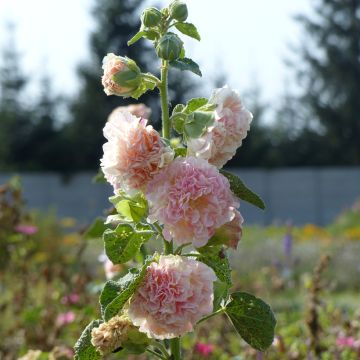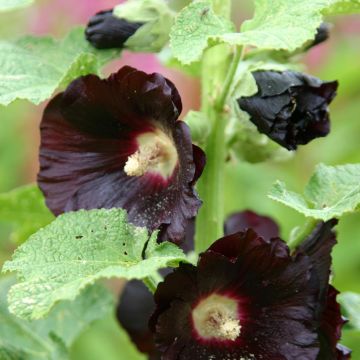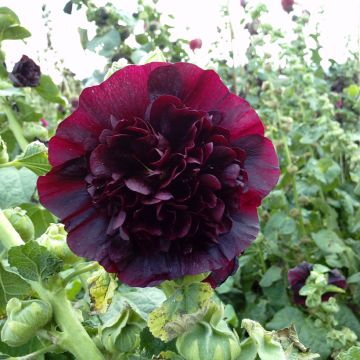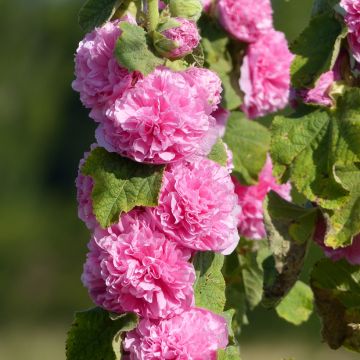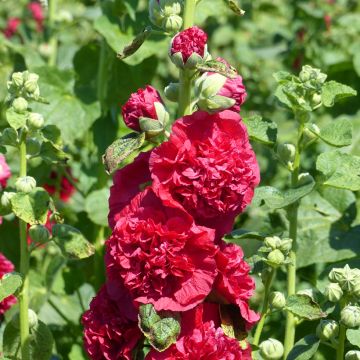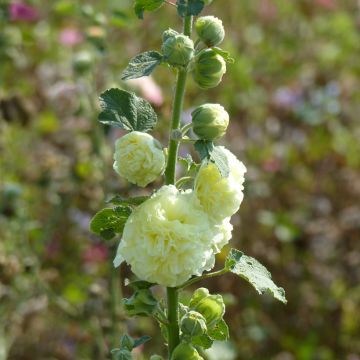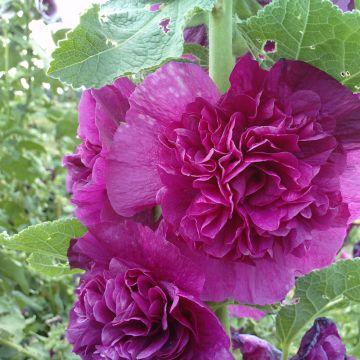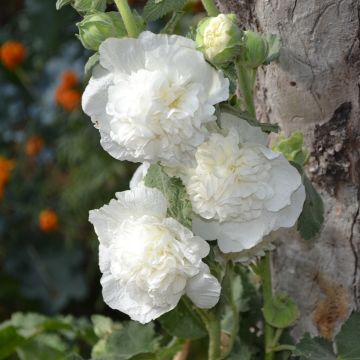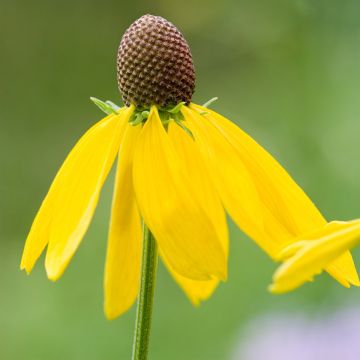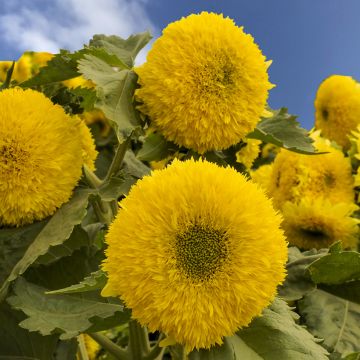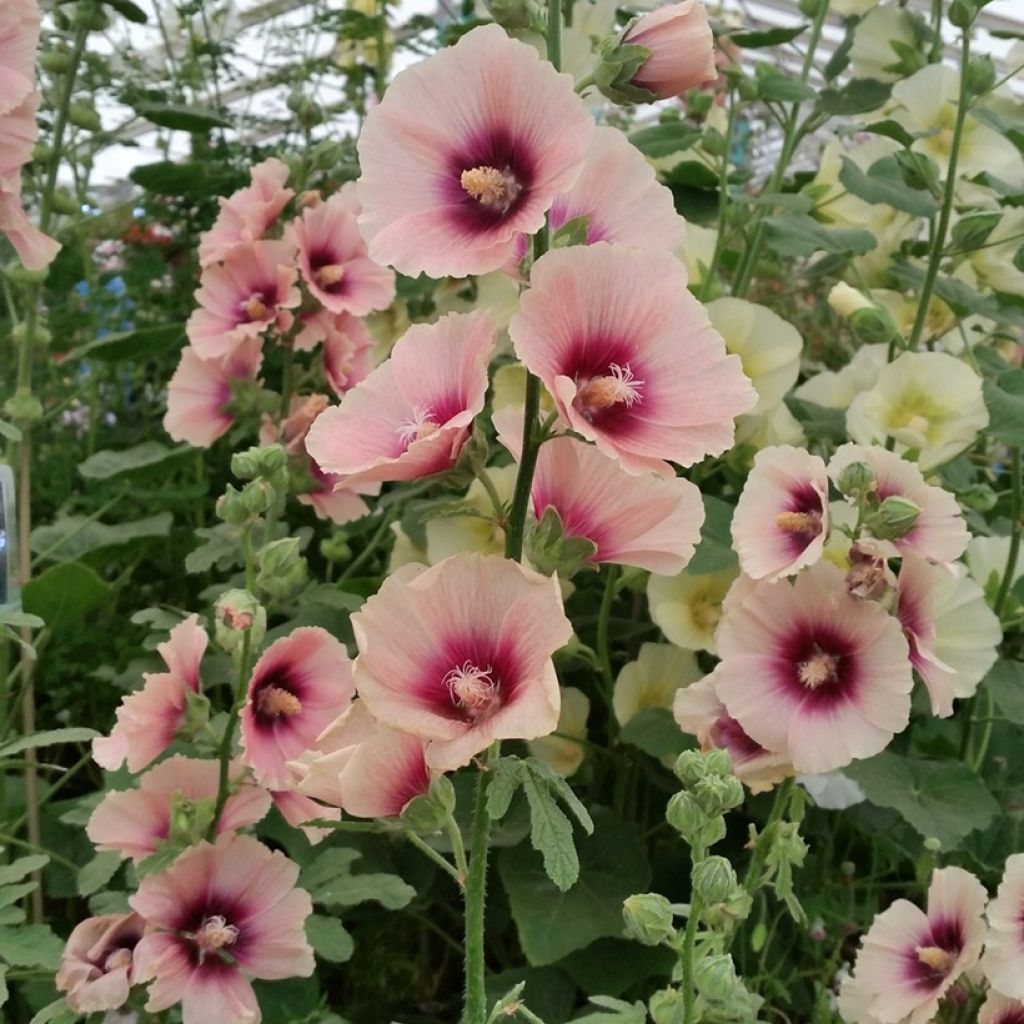

Alcea rosea Halo Apricot Seeds- Hollyhock
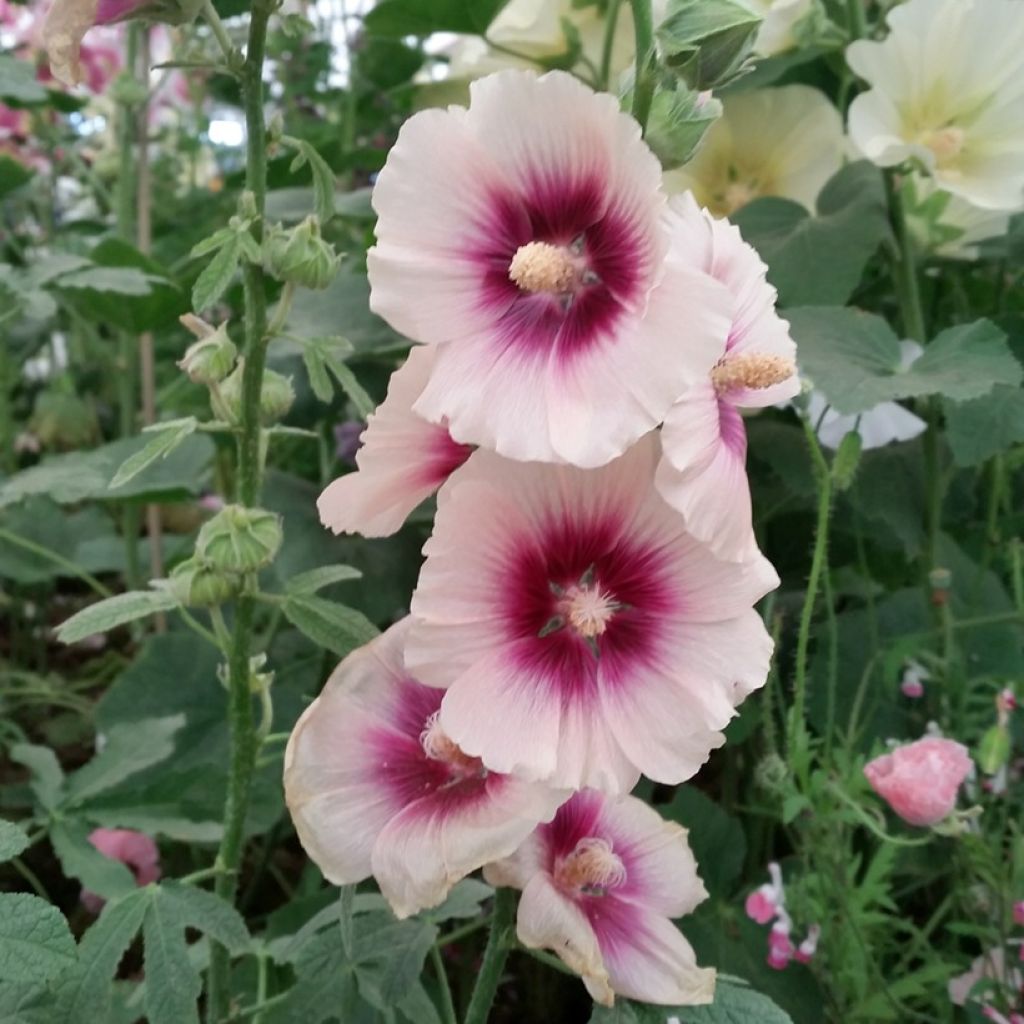

Alcea rosea Halo Apricot Seeds- Hollyhock
Alcea rosea Halo Apricot Seeds- Hollyhock
Alcea rosea Halo Apricot (Halo series)
Hollyhock, Common Hollyhock
All the seeds have germinated well. Sown last spring, I'm looking forward to the flowering with high hopes, given the fine size of the young plants.
Marie, 05/01/2026
Special offer!
Receive a €20 voucher for any order over €90 (excluding delivery costs, credit notes, and plastic-free options)!
1- Add your favorite plants to your cart.
2- Once you have reached €90, confirm your order (you can even choose the delivery date!).
3- As soon as your order is shipped, you will receive an email containing your voucher code, valid for 3 months (90 days).
Your voucher is unique and can only be used once, for any order with a minimum value of €20, excluding delivery costs.
Can be combined with other current offers, non-divisible and non-refundable.
Why not try an alternative variety in stock?
View all →This plant carries a 6 months recovery warranty
More information
We guarantee the quality of our plants for a full growing cycle, and will replace at our expense any plant that fails to recover under normal climatic and planting conditions.

Would this plant suit my garden?
Set up your Plantfit profile →
Description
The hollyhock 'Halo Apricot' is a magnificent variety belonging to the 'Halo' series of Alcea rosea, known for its large bicoloured flowers and robustness. This one produces large corollas in a soft apricot pink with a contrasting deep pink throat. Hardy and rust-resistant, this variety is superb in large flower borders or as a background in rustic flowerbeds. Visited by pollinators, it offers a long and generous summer flowering. Each plant produces after two years 5 to 10 stems adorned with numerous flowers. It requires no watering once established and often self-seeds in unexpected places.
Alcea rosea 'Halo Apricot' is part of a series of hybrids developed in England, renowned for its large bicoloured flowers, bushy habit, ability to produce multiple flower stems per plant, and increased resistance to rust. The wild hollyhock is known by various regional names in France such as Passerose, Stickrose, Papal Rose, or primrose. A member of the Mallow family, it originates from Asia Minor and naturalizes easily in cottage gardens, fallow lands, or on heaps of earth.
The hollyhock 'Halo Apricot', usually grown as a biennial, can behave like a short-lived perennial under good conditions. During the first year, the plant develops a tuft of leaves measuring 50 to 60 cm in all directions. Its large leaves are rounded, lobed, green, villous, and rough to the touch. The plant blooms from the second year onwards. It produces several flower stems rising between 1.50 m and 2.10 m from the ground. The cup-shaped flowers measure 10 to 12 cm in diameter. The flowering period extends from July to September, offering a profusion of apricot pink flowers with a reddish purple centre. These are followed by numerous green fruits filled with flat seeds that self-sow spontaneously in areas seemingly chosen by the plant itself: at the base of walls, in poor rocky soils, wall crevices, etc. This hardy variety withstands temperatures down to -20°C. It prefers a sunny exposure and soils that are both rich and well-drained to grow rapidly and vigorously.
The hollyhock 'Halo Apricot' is perfect for cottage-style gardens or mixed borders. It can be paired with sun-loving plants such as mulleins (Verbascum), Buenos Aires verbena (Verbena bonariensis) and blue perennial geraniums. Together, they create a colourful and attractive display, while attracting numerous pollinators.
The hollyhock is both ornamental and medicinal. Its seeds yield an oil with drying properties. Rich in mucilage, it has soothing, emollient, expectorant, laxative, and appetizing properties that are nonetheless more attenuated than those of its herbalist cousin marshmallow (Althea officinalis).
Report an error about the product description
Alcea rosea Halo Apricot Seeds- Hollyhock in pictures


Flowering
Foliage
Plant habit
Botanical data
Alcea
rosea
Halo Apricot (Halo series)
Malvaceae
Hollyhock, Common Hollyhock
Cultivar or hybrid
Other Hollyhock seeds
View all →Planting and care
Sow the 'Halo Apricot' Hollyhocks from May to August. It takes 15 to 20 days for the young shoots to appear. Transplant the young plants when they reach a height of 7 cm, at a distance of 20 cm from each other. In the following spring, place them in your flower beds at a distance of 40 to 50 cm. Be prepared to stake them if the location is not sheltered from the wind. Avoid planting Hollyhocks in the same spot for several years in a row to prevent the appearance of rust (a parasitic fungus visible as orange powder) on the foliage. Hybrid hollyhocks, although tolerant to summer drought and poor soils, are much more beautiful in fertile soil that retains some freshness in summer. They tolerate limestone very well. In heavy and wet winter soil, these plants will be more biennial than truly perennial. Under optimal growing conditions, they can live for 4 or 5 years.
Sowing period
Intended location
-
, onOrder confirmed
Reply from on Promesse de fleurs
Similar products
Haven't found what you were looking for?
Hardiness is the lowest winter temperature a plant can endure without suffering serious damage or even dying. However, hardiness is affected by location (a sheltered area, such as a patio), protection (winter cover) and soil type (hardiness is improved by well-drained soil).

Photo Sharing Terms & Conditions
In order to encourage gardeners to interact and share their experiences, Promesse de fleurs offers various media enabling content to be uploaded onto its Site - in particular via the ‘Photo sharing’ module.
The User agrees to refrain from:
- Posting any content that is illegal, prejudicial, insulting, racist, inciteful to hatred, revisionist, contrary to public decency, that infringes on privacy or on the privacy rights of third parties, in particular the publicity rights of persons and goods, intellectual property rights, or the right to privacy.
- Submitting content on behalf of a third party;
- Impersonate the identity of a third party and/or publish any personal information about a third party;
In general, the User undertakes to refrain from any unethical behaviour.
All Content (in particular text, comments, files, images, photos, videos, creative works, etc.), which may be subject to property or intellectual property rights, image or other private rights, shall remain the property of the User, subject to the limited rights granted by the terms of the licence granted by Promesse de fleurs as stated below. Users are at liberty to publish or not to publish such Content on the Site, notably via the ‘Photo Sharing’ facility, and accept that this Content shall be made public and freely accessible, notably on the Internet.
Users further acknowledge, undertake to have ,and guarantee that they hold all necessary rights and permissions to publish such material on the Site, in particular with regard to the legislation in force pertaining to any privacy, property, intellectual property, image, or contractual rights, or rights of any other nature. By publishing such Content on the Site, Users acknowledge accepting full liability as publishers of the Content within the meaning of the law, and grant Promesse de fleurs, free of charge, an inclusive, worldwide licence for the said Content for the entire duration of its publication, including all reproduction, representation, up/downloading, displaying, performing, transmission, and storage rights.
Users also grant permission for their name to be linked to the Content and accept that this link may not always be made available.
By engaging in posting material, Users consent to their Content becoming automatically accessible on the Internet, in particular on other sites and/or blogs and/or web pages of the Promesse de fleurs site, including in particular social pages and the Promesse de fleurs catalogue.
Users may secure the removal of entrusted content free of charge by issuing a simple request via our contact form.
The flowering period indicated on our website applies to countries and regions located in USDA zone 8 (France, the United Kingdom, Ireland, the Netherlands, etc.)
It will vary according to where you live:
- In zones 9 to 10 (Italy, Spain, Greece, etc.), flowering will occur about 2 to 4 weeks earlier.
- In zones 6 to 7 (Germany, Poland, Slovenia, and lower mountainous regions), flowering will be delayed by 2 to 3 weeks.
- In zone 5 (Central Europe, Scandinavia), blooming will be delayed by 3 to 5 weeks.
In temperate climates, pruning of spring-flowering shrubs (forsythia, spireas, etc.) should be done just after flowering.
Pruning of summer-flowering shrubs (Indian Lilac, Perovskia, etc.) can be done in winter or spring.
In cold regions as well as with frost-sensitive plants, avoid pruning too early when severe frosts may still occur.
The planting period indicated on our website applies to countries and regions located in USDA zone 8 (France, United Kingdom, Ireland, Netherlands).
It will vary according to where you live:
- In Mediterranean zones (Marseille, Madrid, Milan, etc.), autumn and winter are the best planting periods.
- In continental zones (Strasbourg, Munich, Vienna, etc.), delay planting by 2 to 3 weeks in spring and bring it forward by 2 to 4 weeks in autumn.
- In mountainous regions (the Alps, Pyrenees, Carpathians, etc.), it is best to plant in late spring (May-June) or late summer (August-September).
The harvesting period indicated on our website applies to countries and regions in USDA zone 8 (France, England, Ireland, the Netherlands).
In colder areas (Scandinavia, Poland, Austria...) fruit and vegetable harvests are likely to be delayed by 3-4 weeks.
In warmer areas (Italy, Spain, Greece, etc.), harvesting will probably take place earlier, depending on weather conditions.
The sowing periods indicated on our website apply to countries and regions within USDA Zone 8 (France, UK, Ireland, Netherlands).
In colder areas (Scandinavia, Poland, Austria...), delay any outdoor sowing by 3-4 weeks, or sow under glass.
In warmer climes (Italy, Spain, Greece, etc.), bring outdoor sowing forward by a few weeks.































